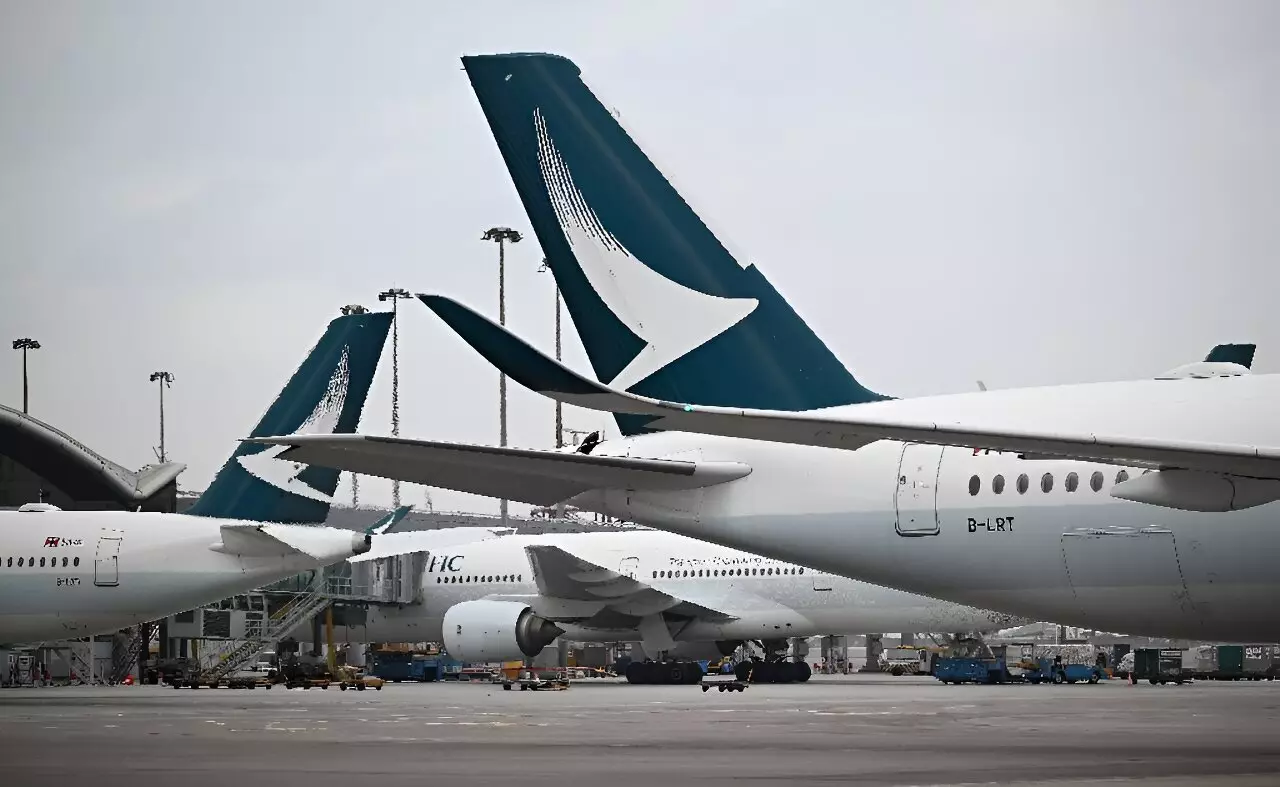Cathay Pacific recently faced a major operational disruption when it was forced to ground 48 Airbus A350 planes due to defective engine fuel lines. This incident occurred after a Zurich-bound flight had to return to the city shortly after take-off, leading to the discovery that components on 15 of the A350s needed immediate replacement. This setback caused Cathay Pacific to cancel dozens of flights, impacting both its domestic and international operations.
The grounding of a significant portion of Cathay Pacific’s A350 fleet resulted in operational challenges for the airline. With 90 flights canceled between Monday and Saturday, the airline’s regional routes, including key destinations like Singapore, Taipei, Tokyo, and Bangkok, were severely affected. Passengers like Mr. Yuen expressed concerns about the safety of the aircraft, highlighting the need for clear communication from the airline regarding maintenance checks and repairs.
The incident involving Cathay Pacific’s A350 fleet also had ripple effects across the aviation industry, prompting other airlines in the region to conduct similar checks on their A350-900 and A350-1000 models. While some airlines like Japan Airlines and Thai Airways reported no issues with their A350 jets, the situation raised awareness about the importance of proactive maintenance practices to ensure passenger safety and operational efficiency.
In response to the defective engine fuel lines, Cathay Pacific initiated repairs on the affected aircraft and collaborated with Airbus and Rolls-Royce to address the issue. Both manufacturers have expressed cooperation with Cathay Pacific and have refrained from mandating checks for other airlines. The ongoing investigation into the root cause of the problem emphasizes the need for continuous monitoring and maintenance of critical aircraft components.
Aviation experts like Terence Fan have highlighted the seriousness of defective engine lines, noting that they can impact fuel flow and pose significant safety risks. The swift action taken by Cathay Pacific to replace the faulty components is crucial in ensuring the airworthiness of its A350 fleet. However, the scale of the issue, affecting one-third of the airline’s A350 aircraft, raises concerns about the reliability and maintenance of modern jetliners.
The incident involving Cathay Pacific’s Airbus A350 fleet serves as a reminder of the complexities of modern aviation and the critical role of maintenance in ensuring the safety of passengers and crew. Airlines must prioritize proactive maintenance practices, thorough inspections, and timely repairs to prevent operational disruptions and maintain the highest standards of safety and reliability. The collaboration between airlines, manufacturers, and regulatory authorities is essential in addressing safety concerns and implementing preventive measures to safeguard the integrity of commercial aviation operations.
The recent grounding of Cathay Pacific’s Airbus A350 fleet due to defective engine fuel lines highlights the vulnerability of modern aircraft to mechanical issues and the importance of rigorous maintenance protocols in ensuring safe and reliable operations. The aviation industry must remain vigilant and proactive in addressing such challenges to uphold the highest standards of safety and efficiency in air travel.


Leave a Reply